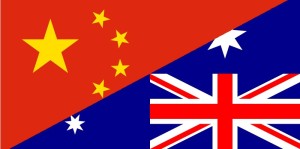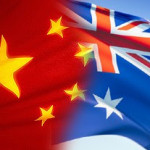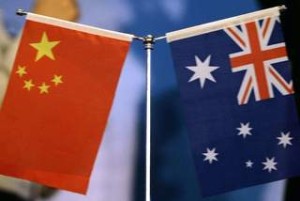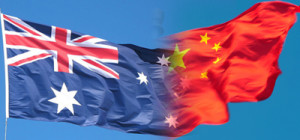 “I like politics, for I don’t want people to experience what I have suffered in my life.”
“I like politics, for I don’t want people to experience what I have suffered in my life.”
It was 1998 at a friend’s party in Perth.
The first general consul of the Chinese Consulate in Perth would soon return to China. It seemed that people felt reluctant to see him leave. The Consul General was in an amiable mood and gave the impression that he was familiar with every member of Chinese community. Being an ordinary man, or being an actor or an official, playing with shares, or collections, or playing with politics, having played to such a degree that people already missed him even before he departed; he was so successful that he should be seen as one of those on the peak of the human pyramid. That year was an Australian national election year. Who says the Chinese are not interested in politics? My circle of friends and colleagues definitely value their right to vote.
No matter who we support, we must be present on the polling day. According to Australia’s rules, everyone must vote. If you don’t vote you must explain why or face a fine even though it is a small amount. We don’t expect to be given money that we haven’t earned; but we should not have to take out the money that is already in our pockets.
When I drove home after the party, I listened to an ABC radio interview about the election. The interview was at his home, where he displayed a placard to protest against racism. After he had bought the land and built a house, because of his Asian appearance, everyday someone threw rocks, and smashed his property. Although he reported the problem, the police didn’t deal with it. Because of lack of evidence (even though it was known who did it). He was harassed all year round, was fearful and extremely anxious and suffered terribly. Therefore he was determined to establish a party which would give a Chinese voice to these issues. This man was really bold; it was unprecedented in Australian history. Good Man! If the opportunity arose I would definitely like to meet this giant and I’d like to vote for him. It was unbelievable that just two days later, someone introduced me to Ed.
I met Ed at his home along with many others, at a social gathering. I found there were a lot of professors and lecturers from all universities of Perth who were from China, Southeast Asia, and from India. Later, I found out that all of these people were elite scholars. ED is Mr. Huang. That day we met to discuss the establishment of the Unity Party and to participate in the national election. Mr. Huang said “nobody listens when only one person speaks, but someone will listen when one party speaks.” From then on, I was inadvertently caught up in a political election, and witnessed the largest tide of Chinese participation in politics in the history of Australia.
That year, the Australian political landscape changed.
A newly elected federal member, Pauline Hanson, in her maiden speech spoke in negative way about Australian aborigines, Asian Australians and immigration. For a time, he became a hero in the eyes of right wing conservative voters. Hanson was central to setting up “the One Nation party”. Moreover she campaigned to expel Asian people and was even more rampant toward the aboriginal people. “Go back to where you came from” was her rallying cry. This Australian continent is the original home of the aboriginal people, who should get out? In order to win votes, the One Nation party brought out the so-called “Zero immigration” policy, and advocated the return of all refugees back home after five years, and called for the Government to abolish the multicultural policy, enforced an English examination for new immigrations, and strictly control the entry of immigrant’s elder parents (Family Reunion). The Liberal party led by John Howard took a noncommittal attitude toward One Nation party. Basically he did not object, because Hanson was not a member of the Liberal party. The racist policies of One Nation became the major reason for Chinese participation in politics. The proverb says: “the rabbit would also kick the eagle in anxiety”. In Sydney’s east, a Chinese Australian leader took an initial step to set up a political party called the Unity Party. Mr. Huang from W.A contacted the east, and decided to set up the Unity Party of the Western Australia in order to participate in the election that year.
Mr. Huang had run a post office agency for many years, a mom-and-pop store and he knew a lot of people. He had retired recently, and sold the business. He had been a chairman of the postal industry association for many years, and conducted a variety of negotiations on behalf of the industry, such as fighting for fair competition environment, bargaining with the government, etc. Therefore he had accumulated a lot of “politics” understanding. Mr. Huang said it needed two basic conditions to establish a political party. First, it must have a Constitution; the eastern Unity Party already had a Constitution and it was available to use after reference and revision. Second, it must have at least 500 members – that was not difficult. The key was to have nominated candidates, including the Senate candidate and the House of Representatives candidate.
The first was the Senate candidate. At that time, the number of Chinese in Perth was not large, thus it not only involved Chinese, but also included other Asian organizations and Aboriginal organizations as allies. After much discussion and negotiation, Ted Wilkes was nominated. He was an aborigine, who had been awarded “Australian of the Year”. The Unity party could be represented by one senator in the Senate with a six year term if it just acquired four percent of the votes.
The next was the candidate for the House of Representatives. The Unity Party, as a small party, was not able to nominate a candidate in each electorate. Therefore as an election strategy, it had to find those electorates that had close number of votes for the two major parties. Sometimes, the election was decided by a small party who could decide who won and who lost the seat. However, government officials can’t be candidates unless they resign their position and if they lost the election, they would have no job to return to. Therefore Mr. Huang was the obvious candidate for the Unity Party. I also recall there was a university teacher’s wish from Hong Kong, running a restaurant; a white man married to a Chinese woman who had opened a grocery store. In addition, there was also a doctor.
Finally, it was a question of money. The nominated candidates were required to pay the nomination fee to the election committee. There were different amounts for the House and the Senate, the amount ranged from hundreds to thousands of dollars. It was a large amount of money for several nominations and the Unity Party had no money. A money rising campaign was organized and it raised enough to nominate the candidates.
The first meeting was held at a community center almost 100 people attended, most were from Asia. Mr. Huang and his wife were busy throughout, and a chairman was elected followed by other Party business.
The emergence of the Unity Party had the two major parties acknowledge its impact. This election battle really made the ruling Liberal party anxious. Chinese participation in politics showed that Chinese were not just cooks in a restaurant as imagined by mainstream society, but would stand up for their rights. There was a lot of negotiation between the big parties and small parties before the election. Sometimes, a big party found the candidate of a small party had similar polices and asked for his support. Thus it was very common that the candidate transferred to another camp. In the spring and autumn period of history, there were no righteous wars. Confucius was a native of Lu country, but originally came from Song country, even took a salary from Wei country.
An election campaign needs publicity, but the party had no funds for advertising so Mr. Huang wrote a press release, contacted a Chinese person in Perth and our article was printed on the front page of the “West Australia Chinese Newspaper”.
“..According to newspaper reports, Australian mainstream society does not object to Hanson and her One Nation party. This saying is not groundless. In the Queensland parliamentary election, the One Nation party is extremely prominent. Some say it is not right for Hanson to be anti-immigration but she is correct in her criticism of the Aborigines. It is evident the White Australian evil still lingers. Friends say that Hanson is not worth worrying about she is just a puppet, but the consideration is armored vehicle with a weapon behind and the One Nation Party coming to climax with each passing day. This remark is correct, Australia is a democratic country with free speech. But if the man who is contrary to the interest that you hold your veins, you would become a caged bird, fish in net; they are the knife, and you are the meat on the plate; if dragon lays on the shore, how can it exert? Therefore, the most important thing is to hold your votes, don’t lose and don’t forget, the most important thing of all is not to fill out the ballot paper incorrectly.”
The voting procedure is very complex, two ballot papers are required. One for the selection of a candidate; another was for election of a party. There were dozens of candidates, and more than ten parties. Few people could figure it out. People who were not interested in the election result would fill in the vote without thought. A mistake would result in a wasted vote. Every candidate had spent a lot of money, thus they were afraid that voters would fill out the ballot papers incorrectly and money would be wasted. Therefore each party produced a “voting guide” to assist voters.
On October 3 polling day, the primary school across from my home was the polling place. That day, the candidates set up their Party bill boards featuring brightly coloured photos. Party volunteers welcomed the voters, and handed out the party “How to vote” cards. I was a volunteer for the Unity Party. The prime locations were occupied by the large parties. I was in a corner with my “How to vote” cards. Nearby stood a “One Nation” representative, I knew we couldn’t beat the large parties but could we defeat him?
The election results were announced that night, no candidate of the Unity Party was elected. There was a total 93,968 votes in the Senate, representing 0.83%, which was less than one percent of all the votes. But the One Nation party won over more than a million votes, accounting for 9%, and won a seat in the Senate. They won 11 of a total of 89 seats in her important base, Queensland.
Chinese participation in the election resulted in a glorious defeat. One Nation didn’t last long and finally was swept out by the Prime Minister of Australia, Tony Abbot. Pauline Hanson was not even elected as a senator and gradually faded out of the political arena. One Nation Party faced in-fighting and other corruption scandals and was continuously exposed by the media, the Party never recovered from such exposure. The political environment in Australia showed that it did not tolerate extreme right wing polices.
The Unity Party also faded out of people’s view. The Party supporters returned to their previous life. It was over, right? Not yet. Mr. Huang insisted that the Unity Party remain as a protest, voice on behalf of the Chinese community. I continued to receive his mass e-mails every day, most were addressed to various government agencies, political parties, and media organizations raising matters of concern. Mr. Huang in the name of Unity Party Chairman wrote to support his appeal.
There was another matter which made Huang angry and was reported in the media.
A Chinese lecturer at Edith Cowan University was recruited and came to Perth from Germany. Chinese New Year’s Eve 1999, this person didn’t know what year it was, and worked at home until mid-night. He felt hungry. He was confronted by two policemen who ask him where he was from. He instinctively struggled to understand what has happened, and this lead to more trouble. The Policemen simply ignored his protest and wrested him to the ground, handcuffed and threw him into a police car, and took him to the police station. The next day, when police interrogated him they realized that this man could speak fluent English, Chinese, and German. They were looking for drug traffickers and had arrested the wrong person! Later Mr. Huang sought an apology from the police. Was this not a replica of the Los Angeles Rodney King case in Perth? He protested in the name of the Unity Party to strongly urge the police that this issue could not be solved by a simple apology. They should be prosecuted for “racist crime against an innocent man”. The two police officers were put on trial and punished.
Later on, I also took part in several annual meetings of the parties. At the last meeting, there were fewer than 10 people, so I left the Party. I had very little contact with Mr. Huang, except that I saw him and his wife on some occasions and we made small talk. I knew that he later established a natives association of Shandong, an organization which he led. He helped many people with their 457 short-term work visas to obtain government security benefits. In order to do this, he even had to negotiate with Tony Abbott during the general election.
Mr. Huang is from Shandong Province. When he was 16 years old, he went to Hong Kong and became an apprentice to his uncle. He felt that he was totally dependent on his uncle even though he and his uncle were relatives. He’d rather live with his mom and dad. His cousin was studying in Sydney. When she returned for a holiday, they had a chat and she knew that Mr. Huang had been awarded a scholarship sponsored by the Colombo Plan of Australia. He came to Australia in 1954 for technical secondary education majoring in agriculture. How about that? That was similar to the students who studied abroad financed by scholarship in the 1980s to 1990s—only 30 years earlier? That is the faith of mankind. There really were pennies from the heaven and you have to believe it. Many celebrities have been awarded a Colombo Plan Scholarship, including the former Prime Minister of Nepal, Minister of Singapore and Malaysia, famous doctors from India, etc. But people like Mr. Huang with no prestigious family background to study in Australia by scholarship were very rare. At that time, Australia had the white Australia Police, so he suffered discrimination, which made him aware of racism all his life.
Time flies and things have changed by 2014; it was already 16 years after the Unity Party had been established. I was astonished to find that the website of the Unity Party were still running and even active on Twitter, which was so incredible. One afternoon, I went to Mr. Huang’s living room and we began chatting.
Mr. Huang was still hale and hearty without any signs of his age. “…Yes, the Unity Party still existed. As long as there are more than 6 people, it can remain registered. It can run so long as there are regulations. The only regret is that you cannot take part in election campaigns.”
What I was curious about was that why a party with only one member can exist for 16 years?
“Because I like politics.” For some people, politics is the dirtiest game in the world, but it is also the most effective method to change society…Why am I so interested in politics? It is from my personal experience. 50 years ago, my wife came to Australia for a reunion with me. It took 3 years from Shandong to Hong Kong and to get the spouse visa in Australia. She stayed in Hong Kong for a very long time. I expected to see her every day and called her every week but got no answer. I really didn’t know what to do. Later someone told me to speak to a Member of Parliament. This was a good idea and three months later, she got the visa. This man changed my life; I will never forget him for the rest of my life. Political power enables decisions to be made. I like politics, because political power can be used to help others…Now, I’ve retired for a dozen years. All the work I do is voluntary. You say I am active? Yes, I am willing to do this even if I am not paid. What is my future plan? Ten years or twenty years? Since I like politics, I will stay in my political life till I die…” Mr. Huang became talkative when we discussed politics.
“So what do you do every day?”
“Here is my schedule. After breakfast, I will check all the emails and browse the newspaper. It takes about 3 hours. Then after lunch, I will meet some friends. You’d better come in the afternoon in the future; because I work in the morning…You asked me what kind of emails? Well, all kinds of emails from all over the world. I go through the newspaper, and I read everything. Two from China, like Xinhua News Agency, one from Hong Kong, one from Taiwan, one from Singapore and two from Japan. How many? Yes, seven. Also the BBC, New York Times, Wall Street Journal and Sydney Morning Herald, Australian Newspaper, West Australian from Australia and some local tabloids. How many in total? Let’s count. 14. So I browse these 14 websites every day. And of course they are in English. I read not only politics but all kinds of news. Whenever there is some interesting news, I will copy it down and mass text it to my friends. I will ask them to make a comment or answer some questions. Maybe today is focused on Abe, tomorrow will be Obama and the next day will be Abbott…I also wrote a letter to the Chinese Premier Wen Jiabao. There are many people in my mass-texting group, including leaders of the European countries and Asian countries and various editors of periodicals and magazines in the world. Generally there is no response but someone will acknowledge my emails.”
“You continue to send emails without reply?” I asked.
Mr. Huang responded by saying: “my purpose is conveying the information, whether it creates an answer or not is not my consideration. Different people have different opinions. For me, replying or not is not very important. You can delete it if you don’t like it. The New York Times always answers automatically to show that they have received the opinion, but never make a comment.
Sometimes I use the name of Unity Party, I also use other names—dozens of names, because I don’t want people to know whether I am a Chinese or Japanese or European. This is a kind of game, keeps me motivated and my mind active. Retirees should have hobbies, and coincidently my interest is politics. I use the computer as a tool to spread information and constantly connect with the outside world.”
“You really didn’t receive any response?”
Mr. Huang smiley said: “Once Barack Obama in his campaign period replied to an E-mail to me, of course it was addressed to the Unity Party and wanted a 10 dollar donation… He wanted me to forward the mail in order to get more donations. I replied that if you, Barack Obama promise that you will not make war in Asia in the future, you surely can obtain the 10 dollars donation from me. Nevertheless, some people said that email was a fake because so many people are on line cheating others.”
I asked: “Can you forward that mail from Barack Obama to me?”
“Do you like Australia? Do you think that you are an Australian?”
“I have lived in Australia for sixty years and I like Australia. I am both an Australia and a Chinese I can’t deny that. I equally love my home town because that’s where I was born although I only lived there for sixteen years. You know that your grandparents and parents will always be part of you. That’s why China still is my hometown. When I die, my tomb will be in China at the place of my ancestors. Although my parents have died I will never forget the time when they were alive. To some extent, I haven’t changed in these sixty years. Because for me, Australia still is foreign country. I think going to China is to go home, my home.
I recall the time many years ago at Portland, when cargo ships arrived, from the Chinese main land or Taiwan; the crew were very surprised to find that there were Chinese here. So they happily invited us on board and we also acted as a tour guide for the captain and crew to look around. In return, they invited us to eat on the ship. I like the work in Portland, although I was only there two years I could see many people from China.
My mind was in a whirl, the voice of Mr. Huang was gradually fading away, just like in the dream… “I once boarded the south Polar Chinese research ships in Fremantle, called the “Polar Stern” and “Snow Dragon”. The captain and the crew invited us on board and we showed them around Perth. After that, we had a big meal on the ship. The steamed buns tasted so great that I will never forget. It is the flavor that only your hometown has! At that time, I would chat with anyone with a Chinese face on the street as if they were my relatives. Our experiences are so much alike. We are all members of the same Party.
After returning home from meeting Mr. Huang I asked the IT officer at my university to check the email from Barack Obama.
Guess What? It was real!
 “澳大利亚和中国,一个是我的父亲,一个是我的母亲,你问我倾向于澳大利亚还是倾向于中国,就相当于你问你的小孩,你喜欢你的父亲还是喜欢你的母亲。很难回答。”
“澳大利亚和中国,一个是我的父亲,一个是我的母亲,你问我倾向于澳大利亚还是倾向于中国,就相当于你问你的小孩,你喜欢你的父亲还是喜欢你的母亲。很难回答。”

